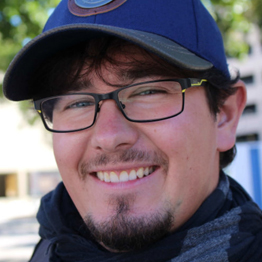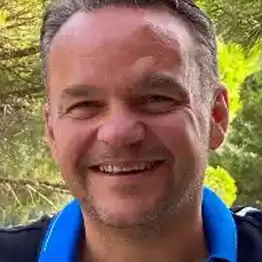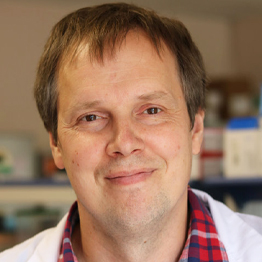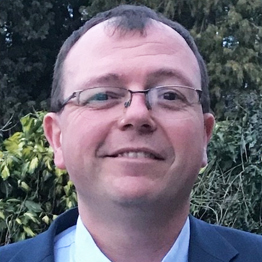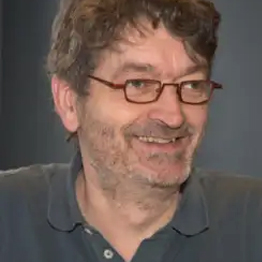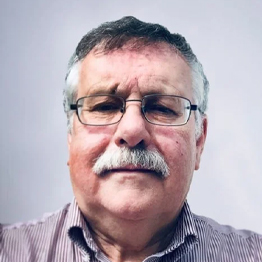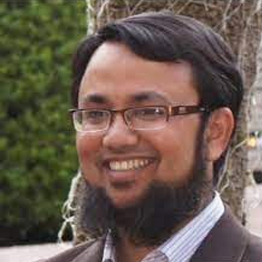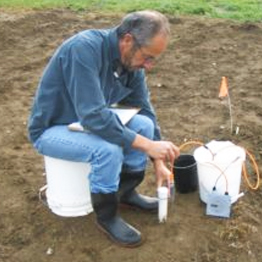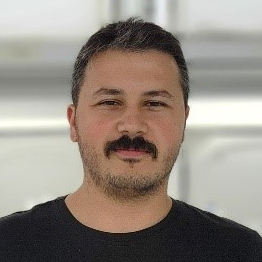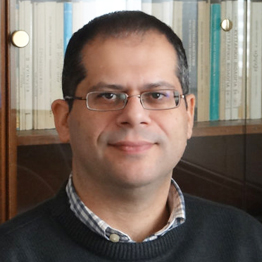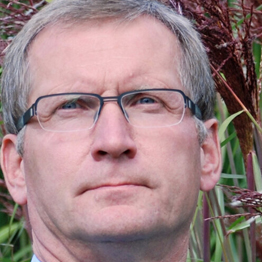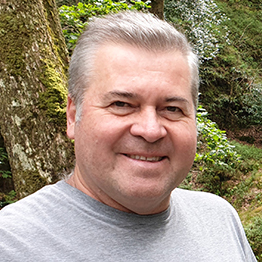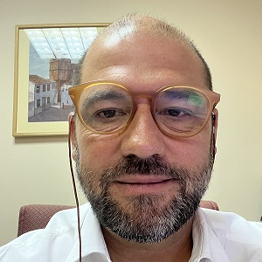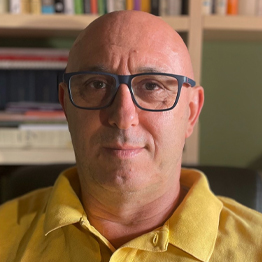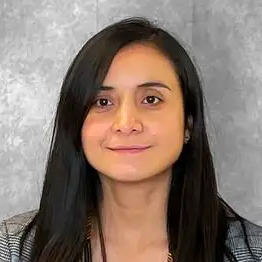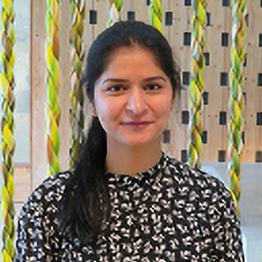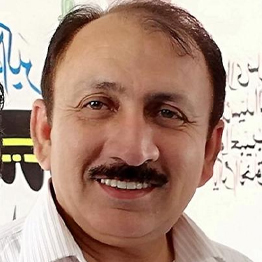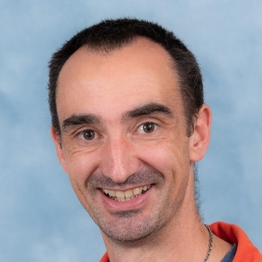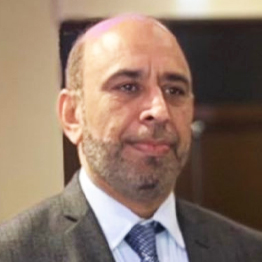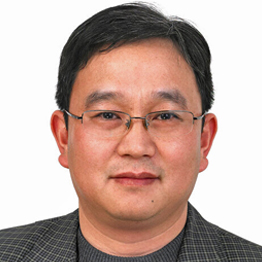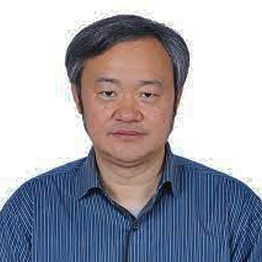12th-14th September 2022
Venue, Swansea University, Wales UK
Professor Tariq Butt
Swansea University - Biocontrol and Natural Products (BANP) group
Tariq's area of expertise is in the development of biopesticides for control of invertebrate pests of socioeconomic importance, especially pests impacting on food security and human and animal health. He has great experience in developing entomopathogenic fungi (EPF) and semiochemicals (attractants, repellents, antifeedants etc) which are deployed in innovative integrated pest management (IPM) programmes (e.g. "lure & kill", "stress & kill").
He works closely with industry, assisting in the development of new products or strategies that enhance the efficacy of the control agent. He has generated several patents with some IP being licensed to industry. Tariq also works closely with government agencies on matters related to the risk assessment and registration of EPF and other biopesticides.
Swansea University / CERTIS
I recently finished my PhD at Swansea University in collaboration with Certis-Belchim. For my PhD, I worked on the development of pest management strategies against wireworms. My researched focused on using entomopathogenic fungi and volatiles organic compounds (VOCs). VOCs were able to kill wireworms and other subterranean pest at high doses, while lower doses had an impact on their behavior, acting as a repellent for wireworms.
I am now working at the French startup company Agriodor, as a researcher in chemical ecology, to develop new pest management strategies using plants odors to repel or attract pests such as cabbage stem flea beetles or aphids.
Senior Technical Expert Toxicology, Syngenta
Ian is a toxicologist, specialising in biological products at Syngenta. He is also Vice President of the UK’s arm of the IBMA (International Biocontrol Manufacturer’s Association). The IBMA is the voice of the Biocontrol technologies industry and represents all its members to promote them and bring to the market via proportionate regulation these green innovative and effective technologies for sustainable agriculture, allowing the farmers to grow healthy, productive and profitable crops.
Asides from his IBMA role (which is voluntary) Ian is also Honorary Visiting Fellow to the Department of Biosciences at Swansea University, where he enjoys a particularly long-lasting and active collaboration with Professor Butt in a variety of areas of sustainable pest management. Ian’s twenty five year career has been spent almost entirely in the biorational crop protection area, where he has held a variety of research, development and registration roles. Prior to this, Ian obtained a PhD from Southampton University on the uses of pheromones and entomopathogenic fungi against stored product pests.
Rothamsted Research, UK
Sam is working towards the development of ecologically-based tactics for integrated pest management (IPM) that will help farmers to sustainably intensify production while minimising negative environmental impacts, particularly those associated with insecticide use. She has a wide knowledge of the pest ecology of arable crops with particular interest in oilseed rape, and on control of pollen beetle and cabbage stem flea beetle.
Novosibirsk State Agrarian University
Professor, Head of Laboratory of Biological Plant Protection and Biotechnology, Novosibirsk State Agrarian University, member of the editorial boards of Journal of Fungi and All Life. H-Index (WoS) - 20. Interests: Biological plant protection, entomopathogens, insect physiology, pathology and immunity, evolutionary biology and parasitology. Member of the Society of Invertebrate Pathology, Russian Entomological, Parasitological and Microbiological Societies.
University of Liege, Gembloux Agro-Bio Tech, Functional and evolutionary Entomology, Passage de Deportes 2, 5030 Gembloux, Belgium
Frédéric Francis was graduated in agricultural science engineering and got a PhD in 2003 on plant – aphid multitrophic interactions. He is Full Professor at Gembloux-Agro Bio Tech – University of Liege and is the head of Entomology Department from 2012. He is the Faculty Dean from 2017. He is also visiting Professor at the Chinese Academy of Agricultural Sciences (CAAS) and at the Shandong Agricultural University.
He develops teaching and research activities to understand insect interactions with their environment (to host plant, as virus vector, with symbionts, …) and promote pest biological control with integrated and complementary strategies. For the last 15 years, he also focused on edible insects. He is involved in many projects in developing countries in Africa, south America and Asia to apply practical approaches to manage insect diversity and valorization. He supervised more than 150 master and 80 PhD students in their research works leading to a broad range of publications in international journals and many communications in scientific conferences. He is the founder and chairman of Hexapoda museum – Insectarium Jean Leclercq in Belgium managing an entomological collection of 5 millions of insects. He promotes entomology at different scales, from the discovery of insects to younger peoples to the support to amateur and professional entomologists.
Novosibirsk State Agrarian University, Russia
My research interests are in insect immunology & host-parasite interactions. I am focused on the mechanisms of insect resistance to insect pathogenic bacteria and fungi. Also, I am interested in cellular and humoral immunity of Galleria mellonella as a model host. One of the main interests is in the understanding of the role of key virulence factors of Bacillus thuringiensis during infection of pest insects. As well as I am interested in the question of ways to enhance the efficiency of existing and creations of new biological insecticides based on Bacillus thuringiensis.
CEO of Avia-GIS
Guy Hendrickx, DVM, PhD, is the founding CEO of Avia-GIS. He has over 35 years of experience in the field of spatial epidemiology and the development of spatial decision support systems for risk management. In Avia-GIS he is particularly interested in the development of tools that help to bridge the gap between research and decision making in the field of vector-borne diseases and precision pest management.
Dr Owen Jones
Lisk and Jones Consultants Ltd, Wales
Dr Owen Jones is a partner in the consultancy company Lisk & Jones Consultants Ltd that specialises in benign pest management technologies. He advises clients on related to semiochemicals, microbial products, biostimulants and plant-derived products.
Prior to his semi-retirement in 2012 he was responsible for Global Strategy at Suterra LLC and was based at AgriSense BCS Ltd, a company which he helped establish in 1984 to develop and commercialise insect monitoring and control systems based on pheromones.
He was also the President of the International Biocontrol Manufacturers’ Association (IBMA) for two years until December 2012 and on the board of IBMA for 5 years prior to that.
Dr Jones’ academic qualifications include a Bachelor of Science Degree from Bangor University and a Doctor of Philosophy Degree from the University of Cambridge (Churchill College). Dr Jones has been a Fellow of the Royal Entomological Society of London since 1978, an Honorary Professor in the School of Biosciences, Cardiff University and an Honorary Fellow of Bangor University.
Russell IPM, UK
Nayem is a Chemical Ecologist (pheromone entomologist), currently working as Head, Research and Development, Russell IPM Ltd. He has been involved with Bio-rational crop protection for over 15 years and has specialised in isolation, identification, formulation, bioassay, field testing and evaluation of insect pheromone for monitoring and control of insect pests.
Agriculture and Agri-Food Canada
Todd is a biologist for Agriculture and Agri-Food Canada who, for decades, has been conducting research on pest management using alternatives to chemical pesticides. His discoveries and inventions are novel, offering new and unconventional possibilities to manage pests. He currently leads research on wireworm management using biocontrol tactics and new technologies to target this pest in its broadest agroecological habitat.
Agriculture Research Institute, Ministry of Agriculture and Forestry, Türkiye
I graduated from Plant Protection Department at Akdeniz University as an agricultural engineer in 2014. After my bachelor's degree, I worked in private and semiprivate companies and then won a scholarship to do a master's degree at the University of Sheffield. After I completed my master's in the field of Practical Entomology in 2020, came back to my country to work. Currently, I work as an entomologist at an agricultural research institute that belongs to the Ministry of Agriculture and Forestry in Türkiye.
My work description is to prepare national/international projects, identify pests, give advice to farmers about the present pests, and rear and make research on biological control agents. Besides, I started my Ph.D. on the synthesis of tomato leaf miner, Tuta absoluta, pheromone at the Agricultural Biotechnology Department at Ondokuz Mayıs University. My lab focuses on breeding the egg parasitoid Trissolcus japonicus (samurai wasp) to control Halyomorpha halys (brown marmorated stink bug). In addition to this, we are also preparing some international projects on the topics such as youth education in sustainable agriculture, bioconversion, and biocontrol.
National and Kapodistrian University of Athens
Dr. Vassili Kouvelis is Assistant Professor of Genetics and Biotechnology in the Department of Biology at the National and Kapodistrian University of Athens. His interests cover the field of Fungal-Molecular-Genetics and Biotechnology: (a) Applied Research: Molecular genetic fingerprinting of economically important fungi; Whole genome analyses; Analysis of specific genes and pathways involved in pathogenesis; host-parasite relationships: entomopathogenicity, endophytism and mycophily – elucidating the mechanisms and interactions employed by fungi for their hosts;
implications in biodiversity and biosafety aspects. (b) Basic research: Mitochondrial genome analyses; evolution of the mitochondrial genome from the first eukaryotic cell, based on data found from the comparative genome analyses of fungi; phylogenetic analyses. He is author of 36 articles in peer-reviewed journals, over 80 presentations at Conferences and writer of 5 chapters in books. His professional memberships include guest editor in Frontiers in Microbiology, reviewer of over 15 different scientific journals and a Fulbright Scholar in 2022.
The Toothpick Project
Peter has been the founder and managing director of the biocontrol company PROPHYTA, which was sold to BAYER CropScience and now belongs to Lallemand. During his work at PRPHYTA he developed the biological fungicide Contans WG and the biological nematicide BioAct Prime both based on fungi as biocontrol agents. He is currently board member of Toothpick Company Limited, a Kenyan biocontrol company dedicated to the control of the parasitic weed Striga hermonthica, known as witchweed. The product called Kichawi Kill Spore Powder is in the process of being launched.
Director, PKMCConsultants
An experienced CEO of multiple businesses across 4 countries and 2 continents, Peter successfully sold and exited from his ventures, and established PKMCConsultants in 2023. A graduate of Hatfield Polytechnic (BSc Environmental Studies), and University of Wales, Bangor (Phd Medical Entomology), Peter has a long and distinguished career, initially in applied entomology, but principally in Business Development.
With extensive overseas experience (Spain, Finland, USA, South America, Asia) and 60 scientific publications on various subjects from South American blood sucking bugs, to Andalusian olive pests, Peter’s career took him away from academia in his 30s, when he established his first company, BCC Consultants, a generic consultancy business covering web design, teaching, book reviews, field entomology and work for the British Council. During this time, Peter was the Treasurer and committee member of the Welsh Government Welsh Pest Management Forum (WPMF).
After securing a contract with a Cardiff University company, Insect Investigations Ltd., Peter took the company out of the University in an MBO in early 2000, relocating the small research group to a business park outside Cardiff, and relaunching it as a Contract Research Organization, under the name i2LResearch. Over the following 20 years, Peter diversified i2LResearch to become a global brand, focussing on insecticide, herbicide, and fungicide testing for the major multinational agrochemical and household pesticide companies, with clients in Japan, China, Australasia, USA, the UK and the EU. As part of the company’s offering of laboratory, glasshouse, and field testing, Peter expanded the company in to Spain, the Czech Republic, and the USA, building up a ‘mini conglomerate’ of 4 limited companies, all under the i2LResearch name, in 4 countries and on 2 continents. During this time, sales grew by 6000% to a peak of £3m, employing 50 members of staff globally. In 2020, Peter sold i2LResearch to Cawood Scientific, a UK based analytical group. Subsequently, Cawood Scientific was itself sold to Ensign Bickford Industries, an aerospace and pet food conglomerate, based in Denver, USA. Peter stayed on as CEO, to assist with the transition of i2LResearch in to the larger group.
Establishing PKMCConsultants in 2023, Peter returned to his consultancy roots and is responsible for securing sponsorship for NewIPM 2023.
Portfolio Manager, Integrated Pest Management / Visiting Professor, Rhodes University
Sean Moore obtained a Masters degree in Entomology and a PhD in biotechnology from Rhodes University, awarded in 2002. He is currently Portfolio Manager for Integrated Pest Management with Citrus Research International, as well as Visiting Professor in the Department of Zoology and Entomology at Rhodes University and a Deputy Director with the Centre for Biological Control. He also founded the biopesticide company, River Bioscience in 2003, specialising in baculovirus production.
His main areas of specialisation are integrated pest management, citrus entomology, insect pathology and microbial control of agricultural pests, particularly insect viruses, and the management of false codling moth. He has more than 80 peer-reviewed scientific publications and book chapters and has supervised or co-supervised more than 50 MSc and PhD students and Postdoctoral research fellows.
Agronomy Department of the School of Agricultural and Forestry Engineering (ETSIAM), University of Córdoba
Prof. Enrique Quesada Moraga is Full Professor of Plant Production and Agricultural Entomology in the Agronomy Department of the School of Agricultural and Forestry Engineering (ETSIAM) of the University of Córdoba. His research interest is focused on bioecology and population dynamics of insect and mite pests and Integrated Pest Management and microbial control of insect pest using entomopathogenic fungi and their extracts, with emphasis on the use of entomopathogenic fungi as multipurpose microorganism in plant protection and production.
He has produced 160 presentations in international conferences (25 invited speaker) and 140 publications, including three books as Editor, ten book chapters and 110 peer–review articles in WOS in top journals in Agriculture, Entomology, Agronomy and Zoology. He has effectively managed 14 competitive projects funded by the Spanish Agency of Science, Regional Government of Andalusia (Spain) and has also participated in 7 EU funded projects on entomopathogenic fungi use for pest control. He is the FUNGI subconvenor of IOBC/wprs working group “Insect Pathogens and Entomoparasitic Nematodes” and elected member of the IOBC council. He has supervised 40, 20 and 18 undergraduate, master and PhD students respectively. He has been Vice-chancellor of Research and Research Transfer of the University of Córdoba and General Coordinator of the International Excellence Agri-food Campus ceiA3 from 2014 to 2022.
Manager of Sustainability and Stakeholders, Certis Belchim (The Netherlands)
Dr. Myrta has a long established career in leading crop protection research (on plant pathology, nematology and entomology) and developing innovative and sustainable IPM solutions, in both industry and academia. During his extended career he has coordinated many research projects and published over 300 scientific papers, whilst also author or co-editor of 20 professional books.
Within Certis Belchim, he has been acting as plant protection coordinator of international networks with the participation of scientists from several Mediterranean and European countries and is now leader of the interprofessional sustainability team. He has worked as a crop protection expert for several international organizations and national agencies, such as EU Com, FAO, Italian Ministry of Foreign Affairs and the Canadian Government, to name a few. Alongside industry, Dr Myrta continues to work closely with academia, and in recent years particularly with Prof. T. Butt of Swansea University. Dr. Myrta has supervised numerous PhD and MSc students on IPM-related topics. He is a member of several professional bodies and has been a board member for the Italian Nematology Society. For his research activities he became first Associate Professor from the Agricultural University of Tirana (Albania) and later Full Professor (eligibility) from the Ministry of Research, Rome (Italy). Prior to this, he obtained a PhD from University of Bari (Italy).
New York State Integrated Pest Management Program, Cornell University, USA
Diana Obregon is currently a postdoctoral associate at the New York State Integrated Pest Management Program at Cornell working on pesticide risk assessment, particularly developing an upgraded version of the EIQ (Environmental Impact Quotient), a globally used pesticide risk rating tool. Diana earned her bachelor of agronomic engineering and her master of entomology at the National University of Colombia studying plant-pollinator interactions with honey bees and stingless bees.
She earned her Ph.D. in Entomology working with Dr. Katja Poveda on how landscape composition mediates pesticide exposure and effects on bees and pollination services. Throughout her professional career, Diana has worked in extension and research striving to contribute to the protection of beneficial insects in agricultural environments.
Netherlands Institute of Ecology, Netherlands
An early career researcher” with a main focus on Plant-Microbe-Insect Interactions, from ecological to mechanistic levels. Currently working on Horizon 2020 EU project “EXCALIBUR” to investigate the mechanisms involved in plant-microbe interactions (mainly fungus) against arthropod pests. Extremely intrigued to know more about these biological interactions, interested (open) to discuss and collaborate to extend my experience and share my expertise.
MNS University of Agriculture, Multan, Pakistan
I have vast experience working with industry and research organizations at national and international levels such as World Bank/UNDP, FAO, Pak.-UK collaborative research, ACIAR, Australia, USAID –PEEP, KNU Korea and the Department of Agriculture, Government of Punjab, Pakistan. My work on IPM of insect pests of major crops like cotton and mango has been acknowledged worldwide. I revolutionized the pesticide industry with the innovative idea of promoting the use of bio-pesticides in agriculture to conserve beneficial insects and reduce environmental pollution.
My vision is to empower farmers with increased crop production with better pest management. Moreover, I have worked on ecology and conservation of insect biodiversity especially Apis and non Apis pollinator's fauna of Pakistan On behalf of ECOSF countries, being a member of Inter-Governmental Science Policy for Bio- diversity and Ecosystem Services (142 member countries),. In this regard, my contribution as as a policy book published the Assessment Report on Pollinators, Pollination and Food Production, a document for policymakers. My contributions are extended up to establishment of the Horticulture Policy Research Center at B.Z. University, Multan in collaboration with USAID.
Department of Life Sciences, Aberystwyth University
Dr Roger Santer is Lecturer in Zoology in the Department of Life Sciences at Aberystwyth University. He began his career investigating the neural mechanisms of insect vision and behaviour, but now applies these insights to improving the control of insect pests. Over the past decade he has modelled the vision of biting flies to guide the engineering of more effective coloured lures, culminating in successful field tests of new prototypes.
More recently, he has applied artificial intelligence techniques to understand why biting flies are attracted to coloured traps, an approach that has great potential for further trap improvement. Prior to his work on flies, Dr Santer investigated behavioural responses of locusts to Metarhizium infection.
Razbio, UK
Dr Farooq Shah is Manager of the Natural Products BioHUB, a Swansea University collaboration with Swansea Council to bring together academia, industry and community to pioneer the use of sustainable natural products. He is also founder and CEO of Razbio limited, a biotech company specialising in the development of Biopesticides and smart insect pest monitoring.
Dr Shah has diverse fundamental and applied research experience of biological control of insect pests, having successfully completed five industry led R&D projects, aimed at developing novel solutions and products for environmentally friendly insect pest control. His current research interests include; improving the monitoring of insect pests and developing strategies for enhancing the efficacy of bio-pesticides. Dr Shah is also leading a consortium of UK and Pakistan based academia, industry and policy makers to establish a biopesticide hub in Pakistan to support capacity building and biopesticide uptake in Pakistan.
Shanghai Institute of Plant Physiology and Ecology, Chinese Academy of Sciences (CAS), China
Dr. Chengshu Wang, PI, professor of Shanghai Institute of Plant Physiology and Ecology, Chinese Academy of Sciences (CAS). He received his PhD from the China Agricultural University in 2001. After his postdoc’s trainings at Swansea University and University of Maryland from 2001-2006, Dr. Wang joined the CAS as a PI in 2007. His research mainly focuses on the genetics, molecular and chemical biology of insect pathogenic fungi.
In particular, he coordinated and sequenced the genomes of 20 entomopathogenic fungi including Metarhizium, Beauveria and Cordyceps species. He has published more than 120 SCI-indexed papers on Current Biology and PNAS etc. and won different awards such as the CAS Distinguished Profess, and “Distinguished Asian Mycologist Award”. He served as the President of Mycological Society of China and the Vice President of Entomological Society of China.
School of Life Sciences, Chongqing University, China
Yuxian Xia, Professor in Microbiology, School of Life Sciences, Chongqing University, China; PhD in Biochemistry, University of Bath. Research interests focus on (1) Molecular mechanisms of conidiation, pathogenicity, stress tolerance in entomopathogenic fungi. (2) Molecular mechanism of insect immunity against entomopathogenic fungi. (3) Development and industrialization of fungal pesticides.
University of Cordoba, Spain
Prof. Meelad Yousef is a researcher at the University of Cordoba (Spain) and a member of the Agricultural Entomology Unit, Department of Agronomy, which is recognized as a Unit of Excellence. The major research contributions of Prof. Yousef during the last five years have focused on: 1) the use of EPF and their extracts for agricultural pests’ control. 2) The search for new control methods based on the use of EPF consisted of investigating at both the laboratory and the field level the effectiveness of different strains of EPF.
3) The multitrophic relationships between plant, insect pest, and the natural enemies mediated by the EPF. 4) The new ecological niches of EPF. Prof. Yousef is the executive director of the Unit of Excellence María de Maeztu Department of Agronomy (DAUCO) of the University of Córdoba. Prof. Yousef is one of the authors of the first biological license signed between the University of Cordoba and the company Koppert Biological Systems which consists in the commercial development of a Metarhizium brunneum strain to control Olive Fly Bactrocera olea by an innovative soil application method. Prof. Yousef is effectively participating in several competitive regional (e.g., AGROMIS), national (e.g., FUNGITECH, BENEFUNGIP), and international projects (e.g., GEN4OLIVE, FRUIT FLY NET ii). He also has large experience in knowledge transfer as a principal investigator in many contracts with prestigious companies and local authorities. He has supervised many undergraduate and master students, and, he is supervising 6 Ph.D. students. In 2016 he received the III Luis Vañó Award for Oil Research, co-granted by the University of California, Davis (USA). He was distinguished by the Baena Protected Designation of Origin on the 45th anniversary of its foundation and granted the First INNOVAGRO Award for Innovation in Agriculture for his work on the microbial control of the olive fly with EF in 2016. Furthermore, the award for the best Ph.D. Thesis. In 2021, he received the prestigious award of the foundation Caja Rural del Sur for innovation in olive grove health.
Name
| Organisation
| Country
|
|---|
| Wanissa Mellikeche |
Università degli studi di Foggia |
Algeria |
| Dana Ment |
Plant Protection, Plant Pathology and Weed Research, ARO, The Volcani Center |
Israel |
| Alexandra Kortsinoglou |
National and Kapodistrian University of Athens |
Greece |
| Matt Green |
Rentokil Initial |
UK |
| Luis Lopez llorca |
University of Alicante |
Spain |
| Ugo Picciotti |
University of Bari-University of Alicante |
Italy |
| Martyn Wood |
Swansea University |
UK |
| Natalie Roberts |
Swansea University |
UK |
| Ant Surrage |
Fargro |
UK |
| Martin Peacock |
Zimmer & Peacock |
UK |
| Alejandro Calixto |
Cornell University |
USA |
| Diana Corredor |
Cornell University |
USA |
| Robin Dietsch |
Hochschule Bielefeld, University of Applied Sciences and Arts (HSBI) |
Germany |
| Shams Usmani |
M2i |
France |
| Holly Alpren |
DEFRA |
UK |
| Ene Leppik |
Agriodor |
France |



